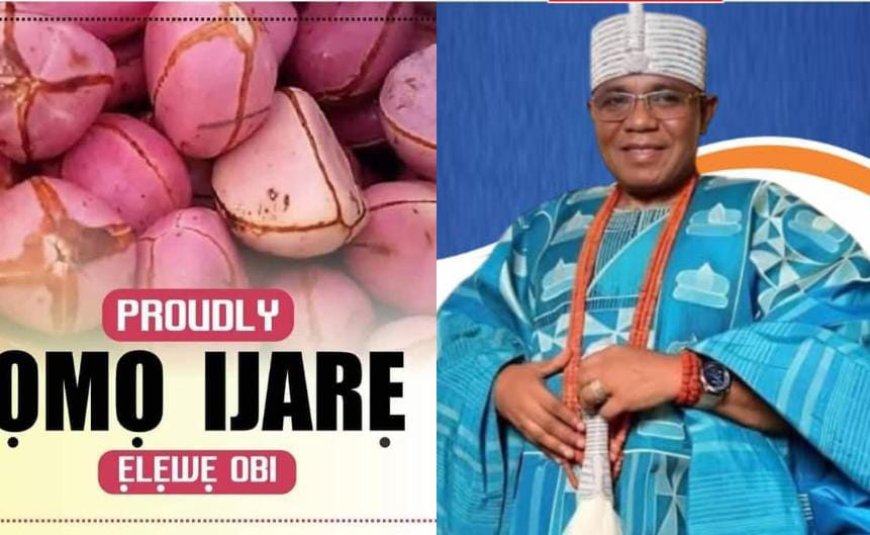The Sejeokun Ruling House of Ijare has strongly rejected recent claims by the Deji of Akure, Oba Aladetoyinbo Aladelusi, asserting paramountcy over Akure-speaking communities, including Ijare.
In a bold and historically grounded response, Prince Oluwatosin Adekunle Alade, speaking on behalf of the Sejeokun Ruling House, described the Deji’s assertion as “historically inaccurate, legally untenable, and culturally offensive.”
The royal family emphasized that Ijare is a sovereign Yoruba kingdom with ancestral migration rooted directly from the Ilare Quarters of Ile-Ife – the cradle of Yoruba civilization, not from Akure. The statement noted that at no time in ancient tradition or colonial administrative history has Ijare ever been a sub-community of Akure.
This comes on the heels of a recent comment by the Deji of Akure, Oba Aladetoyinbo Aladelusi during his 10th coronation anniversary in which he declared:
“Communities like Iju, Ijare, and Ogbolu are Akure-speaking and are part of the greater Akure Kingdom. As the paramount ruler, I maintain cultural and historical links with these areas.”
The monarch said he had visited several communities after ascending the throne a decade ago, urging their traditional rulers to embrace peace and unity.
“When I became Deji, I told other Akure rulers we must not rival the Deji’s stool. It would be like me challenging the Ooni or the Alaafin. That would be laughable.
“We were Deji even before governors came into being. The colonial masters only disrupted our authority. Communities like Iju, Ogbolu, and Ijare were founded by the sons of Deji. No Oba from Akure North, Akure South and Ifedore local governments can compete with the Deji,” he added.
However, the Sejeokun Ruling House countered that this claim runs contrary to both oral tradition and documented legal evidence. Citing the 1979 Morgan Chieftaincy Commission Report, which extensively reviewed traditional rulership structures across the old Ondo Province, the statement emphasized that Ijare was clearly affirmed as an autonomous kingdom, outside the jurisdiction of the Deji of Akure.
“The claim that Ijare was founded by a son of the Deji not only contradicts established historical narratives but undermines the legitimacy and integrity of Ijare’s traditional institutions,” the statement read.
The ruling house further warned that any attempts by individuals within or outside Ijare to collaborate with the Deji on matters of obaship or traditional authority would be viewed as a betrayal of Ijare’s collective will and heritage.
They insisted that the Deji lacks constitutional and traditional authority over Ijare and that any external interference in the town’s internal affairs would be firmly resisted.
“Such declarations risk sowing discord among neighbouring communities that have historically coexisted in peace and mutual respect. While unity is important, it must not be built on the distortion of history and erasure of identity,” the statement added.
The Sejeokun Ruling House reaffirmed Ijare’s unwavering commitment to peace, cultural preservation, and lawful self-determination. But it also made clear that any further encroachment on its sovereignty would be met with a strong and united response.
“Ijare remains proud, autonomous, and historically anchored. That status is not negotiable,” Prince Alade concluded.
This development highlights rising tensions over traditional authority and historical identity among Yoruba-speaking towns in Ondo State, underscoring the need for mutual respect, historical clarity, and adherence to legal precedents in traditional leadership matters.


